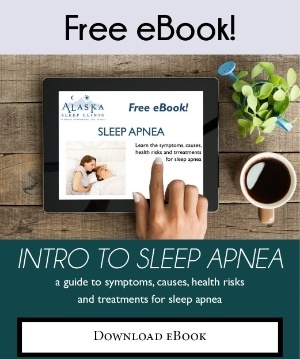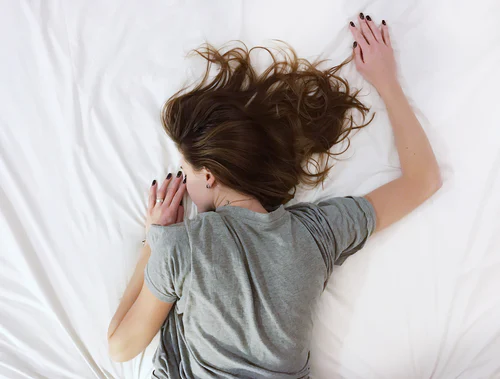High-quality sleep is quintessential for a healthy mind and body. However, very few experience it. Disturbed sleep and insomnia are something that plagues us either temporarily or persistently. Most of us experience sleeplessness that can range from mild to extreme conditions.
The insomnia problem is getting so rampant that sufferers are constantly looking for its natural cure. One cure that is controversial yet grabbing the limelight is cannabis. Given its medical benefits and growing scientific verification, it’s natural to wonder if cannabis can genuinely restore your natural sleep. Here, we try to find a genuine answer. Stay hooked.
Can cannabis restore your natural sleep?
Cannabis can indeed restore your natural sleep. Many doctors and physicians of the medical marijuana community testify to it. According to them, marijuana’s analgesic and anti-anxiety properties primarily aid in restoring your natural sleep.
The science of sleep via cannabis
For centuries, cannabis has been used as a panacea for sleeping disorders, but it has only recently found scientific verification. There are different strains of cannabis that have different effects on us. It is because of over a hundred cannabinoids present in them. These are chemical compounds responsible for their various effects on our bodies. Amongst them, the most high-profile ones responsible for sleep-inducing results are:
● Cannabidiol (CBD)
It is a psychoactive compound, i.e., it does not induce the highs attributed to marijuana. It does not bind with the CB1 and CB2 receptors and indirectly affects them to induce sleep. It also reduces inflammation, muscle spasms, and anxiety to relax the mind and body.
● Tetrahydrocannabinol (THC)
It is a psychoactive compound that causes the ‘high’ feeling. The compound also reduces the amount of REM sleep, i.e., it reduces dreams and nightmares. Less REM means you have more restorative and deep sleep. A high-quality delta 8 cbd is a popular choice for it.
● Cannabinol (CBN)
It is a lesser-known compound formed when the THC gets exposed to heat and light for a prolonged period. Instead of the intoxicating effects of THC, it has a sedating effect. That’s why the compound is also famous as the ‘sleep cannabinoid.’
● Terpenes
They are aromatic compounds found in cannabis and many other plants like lemons, basil, lavender, oregano, pine, etc. Their aroma induces relaxation and helps you sleep better.
Properties of CBD that enhances sleep.

● Calming anti-anxiety action
It happens when CBD directly affects the CB1 receptors and reduces excessive neuronal activity. The ECS produces anandamide, a natural enzyme that elevates mood and reduces pain. CBD delays its enzymatic breakdown, thereby extending its positive effects on the body.
● Impacting CB2 receptors
CB2 receptors present in our body help in regulating immune signaling and inflammatory responses. It regulates the production of cytokine, the pain-receptor substance released by immune cells. CBD influences the CB2 receptors in managing the amount of cytokine produced. It reduces the pain and inflammation of the body that obstructs the most restorative stages of deep sleep.
● Anti-depressive action
CBD can directly activate the 5-HT1A serotonin receptor and help trigger a potent anti-depressive action in the body.
● Increased sleep time
As already discussed, CBD reduces the REM sleep disorder for more restorative sleep. It also reduced the disruptions to the normal sleep-wake cycle.
● Reduced levels of cortisol
Cortisol is our body’s stimulating hormone. CBD helps reduce its production, which helps lower arousals between the restorative stages of sleep and enables more deep sleep. Low levels of cortisol also expedite muscle recovery during sleep for better relaxation.
All these effects work cumulatively to induce better sleep in a person.
Things to know about cannabis as a remedy to sleep disorders
You must be aware of a few crucial facts about cannabis before you adopt it to remedy any sleep disorders. They are:
- CBD and THC are the primary compounds of cannabis. Both affect your sleep patterns differently. Between the two, THC is attributed, better sleep-inducing properties.
- Cannabis has several different kinds of strains. Each strain has a different percentage of CBD and THC in them. Few have equal proportions, and some have one or the other compound high in varying proportions. Hence, you need to try different strains and note their chemical composition to decide which one works best for you.
- The efficacy of cannabis increases when it is combined with other natural remedies. For example, you can pair it with a chamomile tea or lavender bubble bath. This way, the terpenes of all the medications come together to induce better sleep.
- Because of the THC content, you might experience a mild hangover after nighttime cannabis use. You can minimize it by consuming only clean and tested cannabis, eating healthy food, drinking plenty of water, and not over-indulging in its consumption.
- Cannabis can cause sleeping problems if consumed before the age of fifteen. It’s best to consume it under medical supervision.
Wrapping up
You cannot underestimate the benefits of CBD on restful sleep. However, you must always consult a doctor before taking it to avoid any complications.
Although more studies around CBD and sleep disorders need to be conducted, the results of the studies that we do have now show promise when it comes to the efficacy of CBD as a treatment for sleep disorders. As a precaution, before using any CBD products, it is always a good idea to check with your physician first.
Don’t rely, however, on sleep medication to cure insomnia. Prescription and nonprescription sleep medications are only intended for occasional, short-term use.
If you continue to have insomnia, talk to your health care provider or consider consulting with one of our board-certified providers, who specializes in sleep disorders.
Established as the first independent diagnostic testing facility sleep clinic in Alaska in 2002, AIaska Sleep Clinic has grown to 4 locations and 13 beds. Alaska Sleep Clinic is the most comprehensive sleep clinic in Alaska. Contact us today for your FREE sleep assessment.












